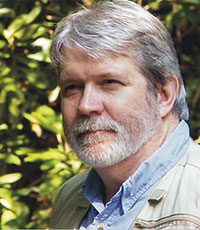By David A. Ramsey
To kick things off, I’d like you to know something about me: I am ignorant. Not stupid—just ignorant. Not to worry though, I’m in good company—because you’re ignorant, too. Now before you get your hackles up, understand I’m talking about simple, honest ignorance, the definition of which is “the basic lack of knowledge about a subject or thing.” Nobody knows it all, right? While I’m as curious as the next person, I don’t fret too much over most of what I don’t know. But the really worrisome thing is that other kind of ignorance—the willful kind. And unfortunately, far too many of our fellow Americans now march to its sad and ominous beat.
Honest ignorance is not an inherently bad thing. It just means you or I don’t know something, which, according to the infamous Donald Rumsfeld, we might not even know we don’t know. But what about willful ignorance? That’s a whole other bucket ‘o bait. Psychologists tell us that to be willfully ignorant means a person realizes, at some level of consciousness, that his beliefs about something are probably false, but for some reason(s), it is more useful for him to intentionally ignore and avoid the true facts and presenters of those facts that prove the beliefs false.
It would seem, at this time in our great country’s history, we are under attack by the forces of willful ignorance. And though they have invaded almost every part of our society, their fierce assault on environmental advocacy and natural resources protection poses a dire threat to us all.
It’s a simple fact that how we treat the environment is directly dependent upon our understanding—and full acknowledgement—of our deep connection to it. But many among the willful ignorance troops have been trained (politicized) to both ridicule and disregard this core element of our very existence—all for the purpose of furthering a political agenda from which you’d be hard-pressed to hear a full, honest sentence about protecting what keeps us alive.
You know it’s gotten pretty bad when the very word, “environment,” has become as negatively politicized and weaponized as it is now. I’m pretty sure those who engage in this foolishness know what keeps them alive on this ‘ol rock, that it ain’t cosmic fairy dust from a galaxy far, far away. They know water doesn’t really come from a faucet, or food from the grocery section at WackyMart—that they feed their families and survive, day to day, by what flows and grows from THE ENVIRONMENT; that what builds our homes, businesses, churches, schools, roads and bridges comes from THE ENVIRONMENT, and that virtually every human action both affects and is affected by THE ENVIRONMENT. Yet onward they march to the squawks of the snake oil peddlers on the TV, radio and internet.
On the flip side of the coin, I’m well aware of the radical element of environmental acitivism that’s also out there in considerable force, many members of which are as willfully ignorant as anybody. For example, a helluvalot of them have shown themselves to be quite clueless about the huge role sportsmen and sportswomen play in American conservation, about their vast financial and political support and grassroots work in helping protect and manage the natural resources of both public and private lands and waters.
It seems a huge segment of self-proclaimed nature and wildlife lovers would rather see a deer or elk die of starvation and/or disease than be humanely taken by a sportsman or indigenous person to feed a family and help protect the population and its habitat. Nothing points up the difference between a common sense conservationist and a misguided tree hugger more than this.
In fact, a fishing buddy of mine, during a discussion once about public lands, half-jokingly referred to me as a tree hugger, upon which I not-half-jokingly mentioned that he could call me Bozo the Clown if he wanted, and I’d just keep on helping make sure he had fish to fish for, places to hunt and clean water for his kids to drink. And if he ever took his head out of his—‘er, I mean, out of the sand long enough to get himself informed, like a “real sportsman,” maybe he could even help himself a little.
Speaking of tree huggers—as a lifelong conservationist and sportsman, I’m not at all impressed with pontificating, preaching or protesting by people that are willfully ignorant of the deeper connection most hunters and anglers have with the environment than many of them have themselves. But, I am inspired when I witness a radical anti-hunter get schooled by a hunter or angler about the Pittman-Robertson or Dingell-Johnson Acts and real-world conservation. It can be an entertaining, deer-in-the-headlights moment.
The takeaway here? Man and nature are deeply connected and interdependent—but willful ignorance, fed by political and social disinformation and dishonesty is toxic and destructive to that relationship. It causes mass disengagement from the critical work of solving our serious local, national and global problems. It is the common enemy of us all, and it’s on the march.
It’s clear these days there are plenty of heads stuck deeply and defiantly in the sand. But if more people tried lifting them up and opening their minds, eyes and ears to sources of information other than dishonest politicians, conspiracy peddlers, lyin’ ratings seekers and online @#%t spreaders, maybe they’d begin to understand and acknowledge that actually, we’re all standing on the same sand. Sometimes we call it common ground.
